Zoh Amba - Bhakti (2022)
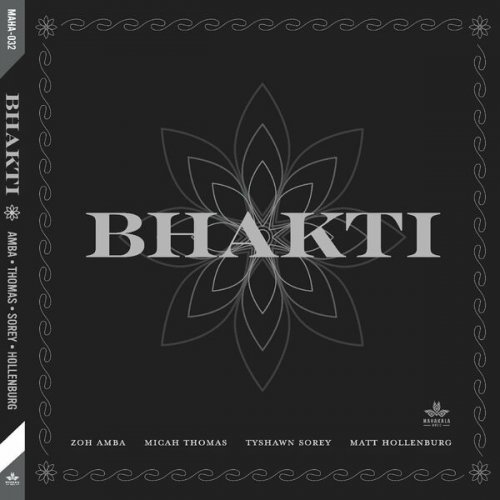
Artist: Zoh Amba
Title: Bhakti
Year Of Release: 2022
Label: Mahakala Music
Genre: Jazz
Quality: FLAC (tracks) | Mp3 / 320kbps
Total Time: 01:00:09
Total Size: 395 MB | 137 MB
WebSite: Album Preview
TracklistTitle: Bhakti
Year Of Release: 2022
Label: Mahakala Music
Genre: Jazz
Quality: FLAC (tracks) | Mp3 / 320kbps
Total Time: 01:00:09
Total Size: 395 MB | 137 MB
WebSite: Album Preview
-----------
01. Zoh Amba - Altar Flower
02. Zoh Amba - The Drop and the Sea
03. Zoh Amba - Awaiting Thee
Silence may be the real root of her wellspring, one she's drawn from over and over again, coaxing from her horn a music
unburdened by mere convention or habits of mind. And at times, as in the opening notes of Bhakti, her new album on Mahakala
Music, that wellspring gives rise to the very opposite of silence, the beguiling, stuttering phrases of her solitary horn seeming to
speak a lost language as if her survival depended on it — like the frenzied incantations of one trying desperately to roll back a
looming stone.
Less than a minute into the track, titled “Altar-Flower,” — Micah Thomas on piano, Tyshawn Sorey on drums — are plunging
deeply into the sound. The textures and rhythms that follow tell a gripping tale, seeming to reinvent music itself. Perhaps that's
why many call it free jazz, but Amba won't pigeonhole her experience. “It's not spontaneous. It's not free jazz,” she says. “It's
none of those things. It's from the heart.”
That, ultimately, is the key to Bhakti. The tale told by every saxophone cry or sigh, every shuffling snare, every pianistic cascade,
isn't fiction. It's autobiography. A youth spent in the silence of the forest gave Amba a sure-footed sense of where she was coming from, and where she was going. Now she's sharing the blossom of her forest's altar-flower with the world.
“When I was young and I was playing,” she recalls, “I didn't know about community and jam sessions and all those things,
because here there's none of that at all. I didn't even know about chord changes. When I would practice, I would practice outside.
People ask me how I got my sound. Well, playing outside and wanting nothing else in this world but God — it makes you have
this longing. I never felt like I was without anything when the horn entered my life. I feel very blessed.”
For Amba, feeling blessed is not a mere figure of speech, but a way to express her connection to forces greater than herself.
“When I was 12 or 13 years old,” she says, “I begged on my hands and knees to go to heaven. And then I got the saxophone.”
She quickly discovered artists who shared similar journeys. “In middle school,” she remembers, “I got randomly put in this band
class. They showed a documentary and it used Charlie Parker's music. It touched me. And even though I heard Bird at such a
young age, and it touched my heart, I wanted to play tenor. I was always searching for players with a dark sound that nobody ever
talks about such as Frank Wright, Kaoru Abe, Arthur Doyle, and Frank Lowe. They completely changed my life.”
“But so many things have changed my life,” she adds. “I listened to Albert Ayler when I was 13 years old. And listening to
others' music made me appreciate being alive and having a beating heart in my chest. All these people taught me fearlessness. T
hey didn't just show me how to play music, they made me feel like it's okay to exist, to be yourself, to plunge deep into your
heart, and not be fearful of anything. David S. Ware did that for me.”
Indeed, the players' sense of openness is palpable on this recording. “None of us had played together as a group before, so we
were all longing to come together. There was no sound check. The beginning of the record is the beginning of when we first
played together. Every single moment on the record is what we did. Nothing was cut, nothing was added.”
Including Matt Hollenberg on the album's final track is a testament to Amba's reliance on inspiration over any formal
preconceptions. After she met John Zorn, on whose Tzadik label she released O, Sun earlier this year, he agreed to set her up with
a group for a show at The Stone in New York. “When I showed up, that's when I met Matt Hollenberg and Kenny Grohowski.
That was John's plan. And it was like Matt and I had known each other our whole lives. I wasn't planning on having anyone else
on this recording date — just me, Tyshawn, and Micah. But the night before I was supposed to go to New York, I had a dream
about the sound of it all.”
“The second track on the record is called 'The Drop and the Sea,' about this drop that's supposedly separate from the sea, but is
not really separate. It's all one. That's how it is in the music, too. And it's an everlasting journey to realize that oneness, to be
submerged into that oneness. It's all God's grace, whether we realize it or not. In the music, I'm able to get glimpses, little tastes
of this divine nectar. And it keeps me going.
Zoh Amba - Tenor Saxophone
Micah Thomas - Piano
Tyshawn Sorey - Drums
Matt Hollenberg - Guitar
unburdened by mere convention or habits of mind. And at times, as in the opening notes of Bhakti, her new album on Mahakala
Music, that wellspring gives rise to the very opposite of silence, the beguiling, stuttering phrases of her solitary horn seeming to
speak a lost language as if her survival depended on it — like the frenzied incantations of one trying desperately to roll back a
looming stone.
Less than a minute into the track, titled “Altar-Flower,” — Micah Thomas on piano, Tyshawn Sorey on drums — are plunging
deeply into the sound. The textures and rhythms that follow tell a gripping tale, seeming to reinvent music itself. Perhaps that's
why many call it free jazz, but Amba won't pigeonhole her experience. “It's not spontaneous. It's not free jazz,” she says. “It's
none of those things. It's from the heart.”
That, ultimately, is the key to Bhakti. The tale told by every saxophone cry or sigh, every shuffling snare, every pianistic cascade,
isn't fiction. It's autobiography. A youth spent in the silence of the forest gave Amba a sure-footed sense of where she was coming from, and where she was going. Now she's sharing the blossom of her forest's altar-flower with the world.
“When I was young and I was playing,” she recalls, “I didn't know about community and jam sessions and all those things,
because here there's none of that at all. I didn't even know about chord changes. When I would practice, I would practice outside.
People ask me how I got my sound. Well, playing outside and wanting nothing else in this world but God — it makes you have
this longing. I never felt like I was without anything when the horn entered my life. I feel very blessed.”
For Amba, feeling blessed is not a mere figure of speech, but a way to express her connection to forces greater than herself.
“When I was 12 or 13 years old,” she says, “I begged on my hands and knees to go to heaven. And then I got the saxophone.”
She quickly discovered artists who shared similar journeys. “In middle school,” she remembers, “I got randomly put in this band
class. They showed a documentary and it used Charlie Parker's music. It touched me. And even though I heard Bird at such a
young age, and it touched my heart, I wanted to play tenor. I was always searching for players with a dark sound that nobody ever
talks about such as Frank Wright, Kaoru Abe, Arthur Doyle, and Frank Lowe. They completely changed my life.”
“But so many things have changed my life,” she adds. “I listened to Albert Ayler when I was 13 years old. And listening to
others' music made me appreciate being alive and having a beating heart in my chest. All these people taught me fearlessness. T
hey didn't just show me how to play music, they made me feel like it's okay to exist, to be yourself, to plunge deep into your
heart, and not be fearful of anything. David S. Ware did that for me.”
Indeed, the players' sense of openness is palpable on this recording. “None of us had played together as a group before, so we
were all longing to come together. There was no sound check. The beginning of the record is the beginning of when we first
played together. Every single moment on the record is what we did. Nothing was cut, nothing was added.”
Including Matt Hollenberg on the album's final track is a testament to Amba's reliance on inspiration over any formal
preconceptions. After she met John Zorn, on whose Tzadik label she released O, Sun earlier this year, he agreed to set her up with
a group for a show at The Stone in New York. “When I showed up, that's when I met Matt Hollenberg and Kenny Grohowski.
That was John's plan. And it was like Matt and I had known each other our whole lives. I wasn't planning on having anyone else
on this recording date — just me, Tyshawn, and Micah. But the night before I was supposed to go to New York, I had a dream
about the sound of it all.”
“The second track on the record is called 'The Drop and the Sea,' about this drop that's supposedly separate from the sea, but is
not really separate. It's all one. That's how it is in the music, too. And it's an everlasting journey to realize that oneness, to be
submerged into that oneness. It's all God's grace, whether we realize it or not. In the music, I'm able to get glimpses, little tastes
of this divine nectar. And it keeps me going.
Zoh Amba - Tenor Saxophone
Micah Thomas - Piano
Tyshawn Sorey - Drums
Matt Hollenberg - Guitar
FLAC
IsraCloud : Download
Mp3
IsraCloud : Download
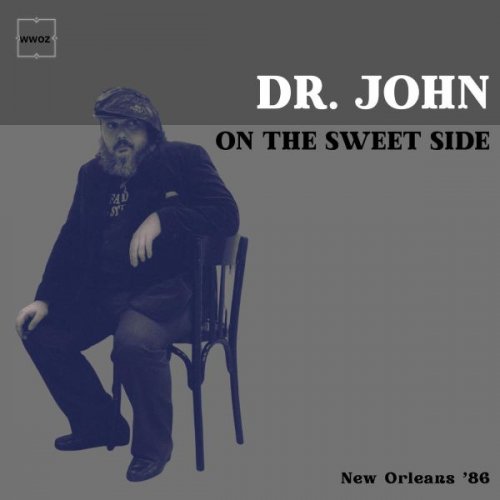
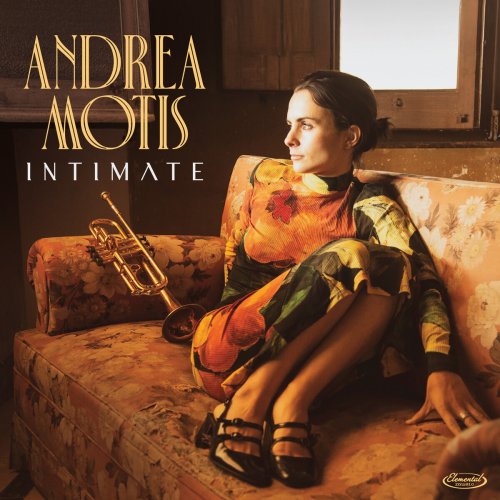


![Stefano Battaglia, Stefano Battaglia Standards Quartet - One Mile Away (2026) [Hi-Res] Stefano Battaglia, Stefano Battaglia Standards Quartet - One Mile Away (2026) [Hi-Res]](https://www.dibpic.com/uploads/posts/2026-03/1772346486_cover.jpg)
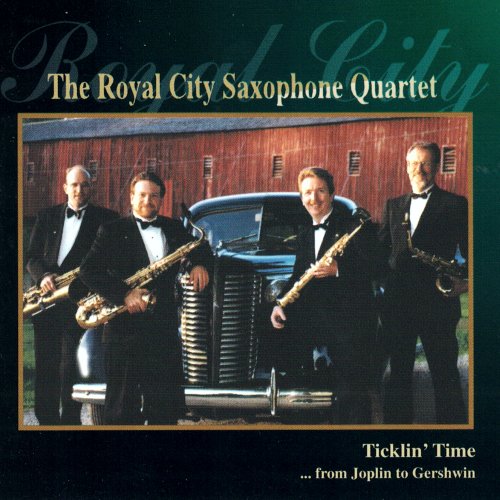
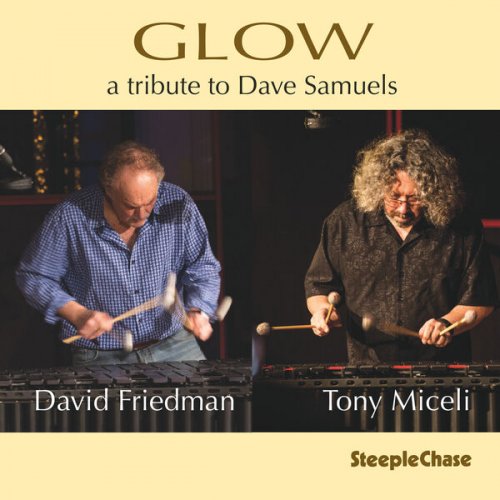
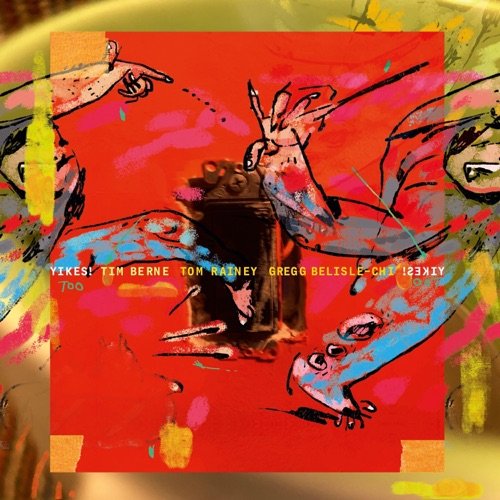
![Charlie Jung - Kailash Band (2026) [Hi-Res] Charlie Jung - Kailash Band (2026) [Hi-Res]](https://www.dibpic.com/uploads/posts/2026-03/1772463390_cover.jpg)